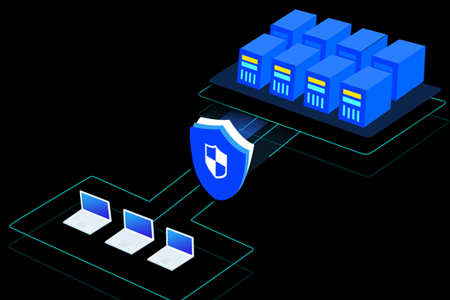Dedicated servers and shared servers are two different hosting solutions, which have obvious differences in resource distribution, performance, security and flexibility.
1. Resource allocation:
Dedicated server: The dedicated server is a physical server that is completely exclusive to a user. All computing resources, storage space and bandwidth are specifically served for the user and do not share with other users. This means that users have complete control over the entire server.
Shared server: Sharing server is the resource of multiple users to share the same physical server. This means that computing resources, storage and bandwidths on the server are allocated to multiple users, which run and share the overall performance of the server on the same server.
2. Performance:
Dedicated server: Because the resources of the dedicated server are completely exclusive, users can get higher performance and greater flexibility. Dedicated servers are usually suitable for applications that require a large number of resources or strict requirements for performance, such as large databases, complex applications or high -traffic websites.
Shared server: The performance of shared servers is affected by the competition between multiple users. When the demand of a user increases, it may affect the performance of other users. Shared servers are usually suitable for small websites, personal blogs or applications that are not highly required.
3. Security:
Dedicated server: Since the special server is exclusive, users have higher security. Users can implement customized security measures, including firewall configuration, access control and encryption to meet their specific needs.
Shared server: The security of shared servers depends on the behavior of all users. If a user's account is attacked or has security vulnerabilities, the data and applications of other users may be threatened. However, good shared server providers usually implement security measures to isolate users.

4. Flexibility:
Dedicated server: Dedicated server provides greater flexibility, users can customize hardware and software configuration according to their needs. Users can choose operating systems, installation of specific applications and tools, and flexibly configuration networks and storage.
Shared server: Sharing servers usually provide less flexibility, because hardware and software configurations are designed for multiple users. Users may be restricted, such as cannot choose a specific operating system or make in -depth customization.
5. Cost:
Dedicated server: Dedicated servers are usually relatively expensive because users enjoy the cost of the entire server exclusively. This is suitable for large enterprises and applications with high performance and privacy.
Sharing server: Sharing server is usually more economical because cost is allocated to multiple users. This is suitable for users with a small business, a website that has just started or a limited budget.
6. Applicable scenario:
Dedicated server: suitable for large enterprises, websites with a large amount of flow, and high -performance and high security applications.
Shared server: Suitable for small enterprises, personal websites, testing and development environments.
Selecting a dedicated server or a shared server depends on the specific needs of users, budgets and requirements for performance, security and flexibility.

 EN
EN
 CN
CN








